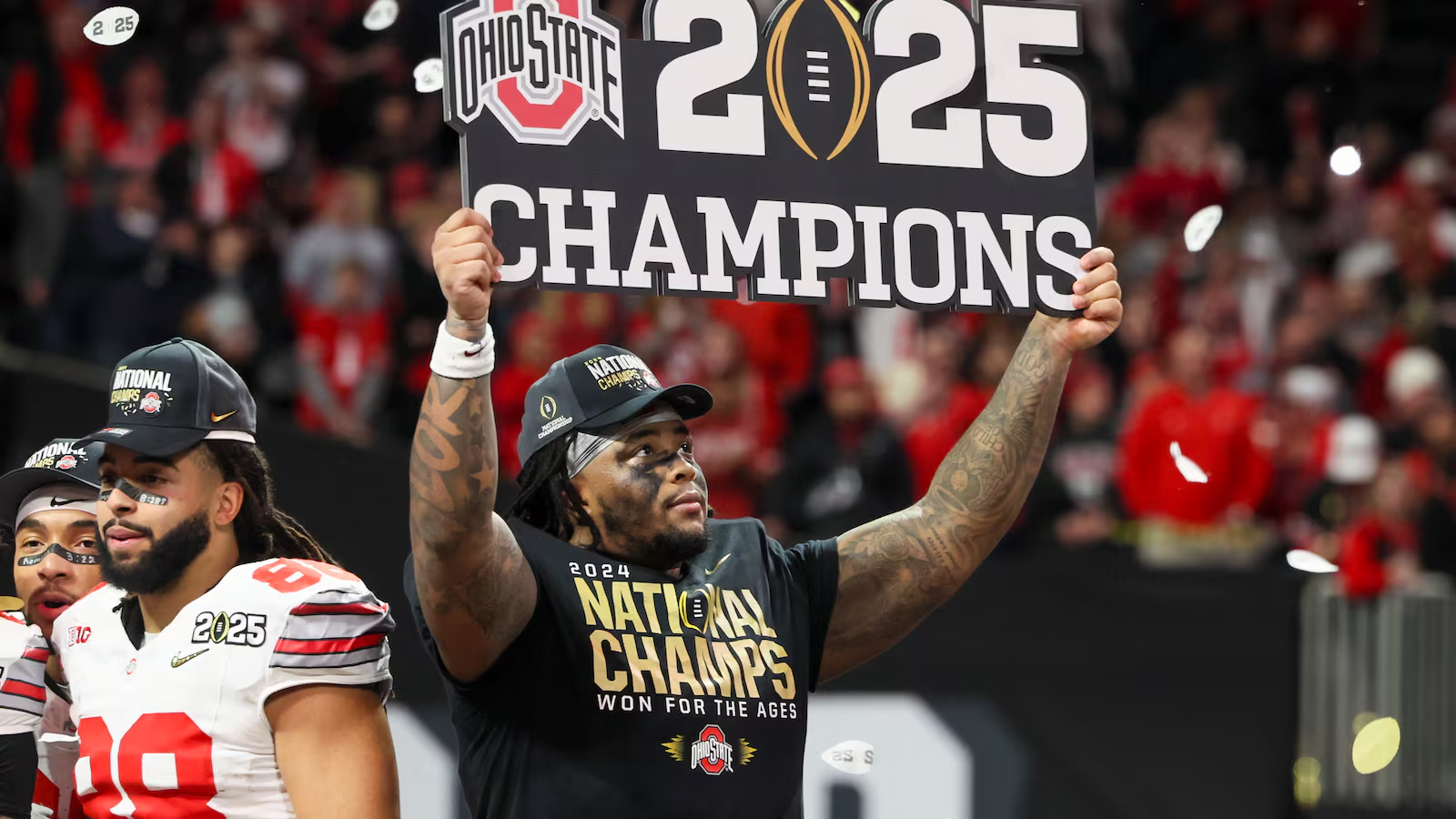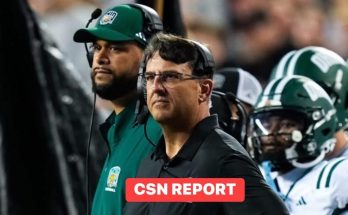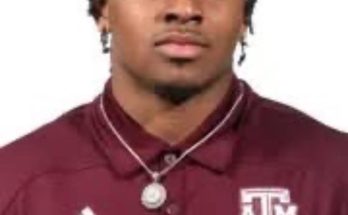In the aftermath of the Baltimore Ravens’ narrow 27-25 loss to the Buffalo Bills in the AFC Divisional Round, tight end Mark Andrews faced significant criticism for two pivotal errors: a fumble in the fourth quarter and a dropped two-point conversion that could have tied the game.
The repercussions of these mistakes extended beyond Andrews himself, affecting his girlfriend, Elena Yates. Yates, a College of Charleston alumna and social media influencer with approximately 25,000 followers, became the target of vitriolic comments on her Instagram account. Fans inundated her posts with derogatory remarks, unjustly holding her accountable for Andrews’ on-field performance.
In response to the online harassment, Yates disabled the comment sections on her recent Instagram posts to shield herself from further abuse. This decision underscores the broader issue of how the personal lives of athletes and their families can be adversely affected by public reactions to sporting events.
Despite the critical errors, both Ravens head coach John Harbaugh and quarterback Lamar Jackson publicly supported Andrews. Harbaugh emphasized Andrews’ importance to the team and his high character, stating, “We wouldn’t be here without Mark Andrews… Mark will handle this fantastically because he’s a high-character person, a tough person and a good person. Proud of him like I’m proud of all the guys.”
This incident highlights the darker side of sports fandom, where the fervor of supporters can sometimes lead to unwarranted personal attacks on players and their loved ones. It serves as a reminder of the need for empathy and respect towards athletes and their families, recognizing that they are not immune to the emotional toll of public scrutiny.
Certainly! Here’s a more detailed exploration of the story surrounding Mark Andrews, his on-field mishap, and the subsequent fallout for both him and his girlfriend Elena Yates.
Mark Andrews, one of the Baltimore Ravens’ most consistent and celebrated players, became the target of criticism following his team’s divisional playoff loss to the Buffalo Bills. In a game that went down to the wire, Andrews committed two pivotal errors—a dropped two-point conversion and a catastrophic fourth-quarter fumble—which allowed the Bills to capitalize and secure a narrow 27-25 victory.
For Andrews, who has long been hailed as one of the NFL’s premier tight ends, these mistakes were uncharacteristic. However, the stakes of the playoffs magnified the errors, resulting in an overwhelming backlash from fans.
Social Media Harassment Targets Elena Yates
While criticism directed at athletes is unfortunately common in the wake of high-profile games, this incident extended beyond Andrews himself. His girlfriend, Elena Yates, became an unexpected and undeserving target of online harassment. Yates, a social media influencer known for her fashion and lifestyle content, boasts a considerable following of over 25,000 on Instagram.
Shortly after the game, Yates’ Instagram posts were flooded with hateful comments. Angry fans unleashed their frustration by targeting her, with messages that ranged from snide remarks to outright abuse. Many of the comments unfairly held her accountable for Andrews’ mistakes, displaying a level of vitriol that highlighted the darker side of sports fandom.
In response, Yates chose to limit her online presence, disabling the comment sections on her posts to protect herself from further harassment. Sources close to Yates revealed that while she had expected some reaction due to the nature of Andrews’ profession, the intensity and personal nature of the attacks caught her off guard.
Support from Within the Ravens Organization
Despite the backlash, Mark Andrews received unwavering support from his teammates and coaching staff. Ravens head coach John Harbaugh was quick to defend Andrews in his postgame press conference, calling him an indispensable part of the team.
“We wouldn’t even be in this position without Mark,” Harbaugh stated. “He’s a competitor. He’s a leader. Mistakes happen, but I have full confidence that he’ll bounce back stronger than ever.”
Quarterback Lamar Jackson echoed similar sentiments, emphasizing the bond shared within the Ravens locker room. “We all make mistakes—it’s part of the game,” Jackson said. “Mark’s one of the best in the league, and we’ve got his back no matter what.”
These statements of solidarity served as a reminder of Andrews’ value to the team and his ability to persevere through adversity.
The Pressure on Athletes’ Families
The scrutiny faced by athletes’ families and loved ones is an issue that has been steadily gaining attention. With the rise of social media, fans have unprecedented access to the personal lives of players, often blurring the boundaries of respect and decorum.
In Yates’ case, her association with Andrews became a focal point for misplaced anger, showcasing the collateral damage of public criticism in high-stakes sports. This type of harassment is not unique to the Andrews-Yates situation; similar incidents have occurred with other athletes and their families, highlighting the need for greater awareness and empathy.
Yates’ decision to shield herself from the vitriol by silencing comments on her Instagram posts was a necessary step for her mental well-being. However, it also underscores a broader conversation about the responsibilities of fans in maintaining a respectful discourse.
The Cost of Fame in Professional Sports
The incident has reignited discussions about the mental toll of professional sports on athletes and their loved ones. For players like Mark Andrews, the pressure to perform is immense, with every play dissected and every mistake magnified. The emotional burden is often shared by their families, who, despite not being on the field, become inadvertent participants in the drama.
Experts in sports psychology emphasize the importance of support systems for athletes and their families. Dr. Jessica Miller, a psychologist specializing in performance and mental health, explains: “Athletes and their loved ones face unique challenges due to the public nature of their lives. It’s crucial to have resources and strategies in place to cope with the pressures and criticism that come with the territory.”
Moving Forward
For Mark Andrews, the path to redemption lies in how he responds to this setback. His track record suggests that he is more than capable of bouncing back. Known for his resilience and work ethic, Andrews has overcome challenges before, including managing Type 1 diabetes throughout his football career.
Meanwhile, for Elena Yates, the focus will likely be on maintaining her personal and professional boundaries as she navigates the aftermath of this incident. By taking proactive steps to protect her mental health, she has demonstrated strength and poise in the face of adversity.
A Broader Lesson for Sports Fans
This situation serves as a stark reminder of the human aspect of professional sports. Behind the jerseys and highlight reels are individuals with lives and emotions, as well as families who support them. While passion for a team is natural, it is crucial to channel that passion in constructive ways.
As sports continue to dominate popular culture, fostering a healthier environment for athletes, their families, and fans alike should be a collective goal. Respect, empathy, and accountability are essential in ensuring that the love for the game does not come at the expense of basic human decency.
By addressing these broader issues and rallying around their tight end, the Baltimore Ravens have an opportunity to emerge stronger as a team. For Mark Andrews and Elena Yates, this chapter, though challenging, is just one part of their story—a story that will likely continue to inspire resilience and growth.



